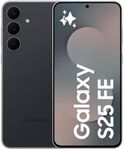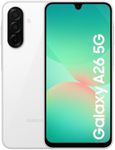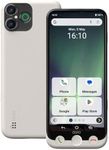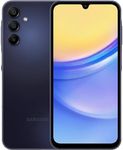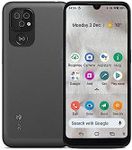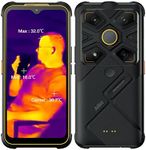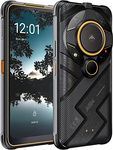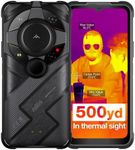Buying Guide for the Best Smartphones For Seniors
Choosing a smartphone for seniors involves considering ease of use, accessibility features, and durability. Seniors may prioritize a device that is simple to navigate, has clear display options, and offers reliable performance for essential tasks like calling, texting, and browsing. It's important to focus on features that enhance usability and comfort, ensuring the device meets their specific needs without overwhelming them with unnecessary complexity.Display SizeDisplay size refers to the diagonal measurement of the screen, usually in inches. A larger display can be beneficial for seniors as it makes text and icons easier to see and interact with. Typically, smartphones with display sizes ranging from 5.5 to 6.5 inches are considered ideal for seniors, offering a balance between portability and readability. If the senior has vision difficulties, opting for a larger screen might be more comfortable, while those who prefer a more compact device might choose a smaller size.
User InterfaceThe user interface is the way users interact with the smartphone, including the layout of apps and settings. A simple and intuitive user interface is crucial for seniors, as it reduces the learning curve and makes navigation straightforward. Look for smartphones that offer simplified modes or accessibility features, such as larger icons and text, voice commands, and easy-to-use menus. Seniors who are less tech-savvy may benefit from a device with a streamlined interface, while those more familiar with technology might appreciate customizable options.
Battery LifeBattery life indicates how long a smartphone can operate before needing a recharge. For seniors, a long-lasting battery is important to ensure the phone remains functional throughout the day without frequent charging. Smartphones with battery capacities of 3000mAh or higher are generally sufficient for regular use, including calls, texts, and light browsing. If the senior uses the phone primarily for communication, a standard battery life should suffice, but if they enjoy activities like video streaming or gaming, a larger battery capacity might be necessary.
DurabilityDurability refers to the smartphone's ability to withstand drops, spills, and other accidents. Seniors may benefit from a device that is robust and can endure everyday mishaps. Look for smartphones with features like water resistance, reinforced glass, and sturdy build materials. If the senior is prone to dropping their phone or using it in environments where it might get wet, a durable model is advisable. For those who are careful with their devices, standard durability features may be sufficient.
Camera QualityCamera quality is determined by the resolution and features of the smartphone's camera. While seniors may not prioritize high-end photography, a decent camera can be useful for capturing memories and video calls. Look for smartphones with cameras that offer at least 12 megapixels and simple photo-taking options. If the senior enjoys taking photos or video chatting with family, a camera with good quality and easy-to-use features is beneficial. For those who rarely use the camera, basic functionality should be adequate.
Sound QualitySound quality refers to the clarity and volume of audio output from the smartphone. Good sound quality is important for seniors, especially for making calls and listening to media. Look for smartphones with loud and clear speakers, and consider models that offer hearing aid compatibility if needed. If the senior has hearing difficulties, prioritize devices with enhanced audio features. For those with normal hearing, standard sound quality should be sufficient.
